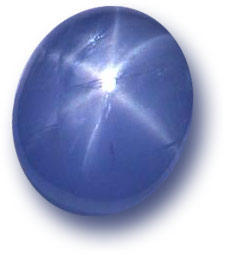- v50 information can now be added to pages in the main namespace. v0.47 information can still be found in the DF2014 namespace. See here for more details on the new versioning policy.
- Use this page to report any issues related to the migration.
Difference between revisions of "Star sapphire"
LethosorBot (talk | contribs) m (Removing {{migrated article}}) |
(Added second graphic.) |
||
| (11 intermediate revisions by 9 users not shown) | |||
| Line 1: | Line 1: | ||
| − | {{ | + | {{Quality|Fine}} |
| + | {{gemlookup/0 | ||
| + | |graphic=cut_star_sapphire_sprite.png | ||
| + | |graphic2=rough_star_sapphire_sprite.png | ||
| + | |wiki=asterism (gemology)}} | ||
| + | {{av}} | ||
| − | '''Star | + | '''Star sapphires''' are extremely rare blue [[gem]]s found in clusters of [[sapphire]]s, which are themselves only found in clusters of [[bauxite]] - among the most valuable gems that can be found in ''Dwarf Fortress'', on par with [[diamond]]s. |
| + | |||
| + | {{Minorspoiler}} | ||
| + | Like all precious and rare gems, they may also make up part of the walls of [[unusual volcanic wall]]s. | ||
==In Real Life== | ==In Real Life== | ||
The "star" pattern that this mineral is known for is caused by [[rutile]] (Titanium dioxide: TiO<sub>2</sub>) crystals that have impregnated the host corundum crystal. Star sapphires are only smoothed into cabochons, as cutting them with facets does not allow the star pattern to be seen. | The "star" pattern that this mineral is known for is caused by [[rutile]] (Titanium dioxide: TiO<sub>2</sub>) crystals that have impregnated the host corundum crystal. Star sapphires are only smoothed into cabochons, as cutting them with facets does not allow the star pattern to be seen. | ||
| + | |||
| + | [[File:Star-Saphire.jpg|thumb|center|300px|Star sapphire cabochon.]] | ||
{{gamedata}} | {{gamedata}} | ||
{{gems}} | {{gems}} | ||
Latest revision as of 16:37, 9 May 2024
| ||||||||||||||||||||||||||||||||||||
| Graphic | ||||||||||||||||||||||||||||||||||||
|---|---|---|---|---|---|---|---|---|---|---|---|---|---|---|---|---|---|---|---|---|---|---|---|---|---|---|---|---|---|---|---|---|---|---|---|---|
| Uses | ||||||||||||||||||||||||||||||||||||
| Location | ||||||||||||||||||||||||||||||||||||
|
| ||||||||||||||||||||||||||||||||||||
| Properties | ||||||||||||||||||||||||||||||||||||
| ||||||||||||||||||||||||||||||||||||
v50.14 · v0.47.05 This article is about the current version of DF.Note that some content may still need to be updated. |
Star sapphires are extremely rare blue gems found in clusters of sapphires, which are themselves only found in clusters of bauxite - among the most valuable gems that can be found in Dwarf Fortress, on par with diamonds.
Like all precious and rare gems, they may also make up part of the walls of unusual volcanic walls.
In Real Life[edit]
The "star" pattern that this mineral is known for is caused by rutile (Titanium dioxide: TiO2) crystals that have impregnated the host corundum crystal. Star sapphires are only smoothed into cabochons, as cutting them with facets does not allow the star pattern to be seen.
[INORGANIC:SAPPHIRE_STAR]
[USE_MATERIAL_TEMPLATE:STONE_TEMPLATE]
[TILE:15][IS_GEM:star sapphire:STP:OVERWRITE_SOLID][DISPLAY_COLOR:1:7:1][MATERIAL_VALUE:60]
[ENVIRONMENT_SPEC:SAPPHIRE:CLUSTER_ONE:1]
[SOLID_DENSITY:4005] Common to corundums. Range 3960 - 4050
[STATE_COLOR:ALL_SOLID:LIGHT_BLUE] |
| Ornamental (2☼-15☼) | Chrysocolla • Lapis lazuli • Pyrite • Tiger iron • Turquoise • Variscite
| ||||||||||||||||
|---|---|---|---|---|---|---|---|---|---|---|---|---|---|---|---|---|---|
| Semi-Precious (20☼-30☼) | Amethyst • Green jade • Kunzite • Light yellow diamond • Peridot • Tanzanite • Topaz
| ||||||||||||||||
| Precious (40☼) | |||||||||||||||||
| Rare (60☼) | |||||||||||||||||
| See also: Diamond • Opal • Glass • Pearl • Stone | |||||||||||||||||
